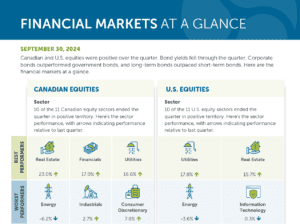Financial advisers are leaving the industry at alarming numbers leaving customers exposed

Russell Cain Updated: 25 June 2021
The ongoing exodus of registered financial advisers from the Australian market shows no sign of slowing down, while the cost of quality advice is continuing to rise. At the end of the day, this leaves lower value customers in particular exposed and without advice.
As recently as 2018 the Australian market supported 28,000 advisers; that number has now dropped below 20,000, declining 11% year on year to 19,922, according to the Financial Standard. Adviser Ratings reported in mid-June 2021 the active advisers numbers had fallen further to 19,816.
Customers looking for affordable life insurance advice now have few options left, including finding relevant information through the internet, their super fund, their bank or going the DIY route, which could be challenging. As the number of advisers continues to drop, the prices are continuing to rise leaving customers in an unfavourable position.
Why financial advisers are leaving the life insurance industry
Following the recommendations from the Hayne royal commission in 2019, the viability of many financial adviser businesses has become a major factor in the shrinking of the industry. Overly complicated compliance requirements and red tape have increased the basic cost of doing business. In addition, general financial planning regulations have significantly increased over the last handful of years.
A second major factor is the stress around the education requirements. All financial advisers must pass the Financial Adviser Examination ( FASEA exams) by no later than 31 December 2021. In February this year, the Financial Review reported that two in five advisers have yet to sit for the exam and at least 2000 advisers had no intention of taking the examination.
Why costs are going up in the financial advice industry
According to a Financial Services Council report released in April, consumers now face an average advice fee of around $3,240. Which means that they are experiencing an unsustainable rate of increase of 28 per cent in just two years.
The ongoing compliance cost through increased regulations has put a severe economic strain on the industry to remain viable. To recover costs and remain competitive, the industry has passed costs down to the consumer. In short, the average adviser fees have increased as a result of these pressures.
Another factor has been the predictable result of advisers cutting unprofitable clients from their rosters to operate viable businesses. This in turn has increased the demand for reliable advice, driving prices up further.

What are your options if fees become unaffordable
As the financial advice industry shrinks and rising costs make their services unaffordable to the average working Australian, there are other options available to consider.
The internet: A life insurance broker or comparison website such as Life Insurance Direct can inform customers, compare different policies and insurers.Your super fund: Many Super Funds have been growing their advice capability as they try to retain members when they retire.Your bank: Banks provide financial calculators and other factual information through their websites.Seeing a financial adviser for a specific element of your requirements: Although the financial adviser fees might be prohibitive, some offer specific services that could work out more affordable than the usual advice costDIY: The do it yourself option is available with information available to the consumer through reputable websites and sources. However not all products are available to consumers directly and have to be acquired through an intermediary such as a financial adviser, broker.
What do brokers/comparison websites offer?
It can be quite overwhelming when considering all the different options available when you look for the right insurance policy to keep your family secure.
Brokers or comparison websites specialising in life insurance, like Life Insurance Direct, can provide a valuable service to customers. These include:
Providing general information about life insurance policies and servicesAssist you in comparing different policies and insurers Assisting in setting up a policy based on your requirementsProvide ongoing assistance with your policy and cover needs as your requirements changeAssistance when you need to make a claim on your policy.
Frequently asked questions and answers
What is an insurance broker?
An insurance broker is a go-between who sells or negotiates insurance policies on behalf of clients and gets compensated for their services typically through a âbrokerage feeâ.
How to become an insurance broker
To become a qualified insurance broker, you will need to obtain the relevant qualifications eg: diploma, gain experience, and become Authorised under an Australian Financial Services License.
What are the average fees of an insurance broker?
There are no average fees for an insurance broker. However, generally, insurance brokers will be paid a commission based on the insurance premium you pay. They may also add a fee for their service, based on the type of insurance, and or work involved in getting you adequately protected.






